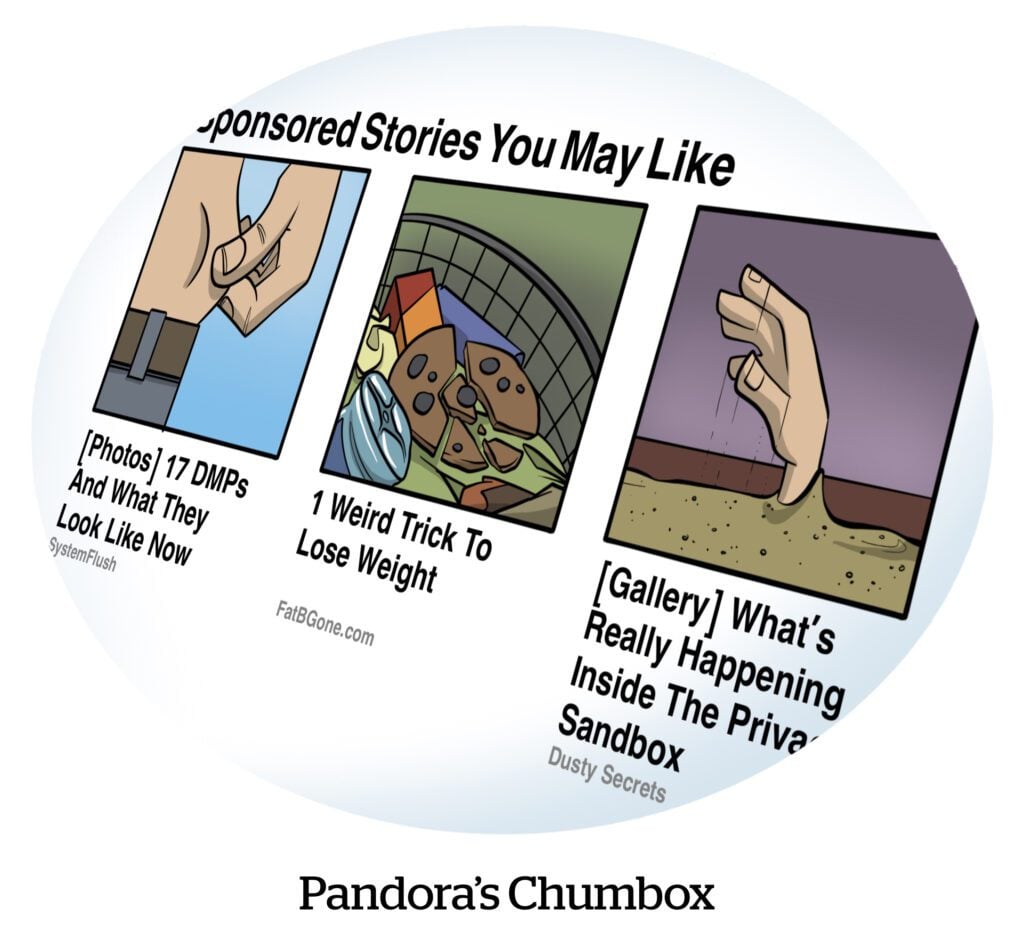Publishers still live in fear of being unknowingly branded as a shady made-for-advertising (MFA) site – and losing out on ad revenue as a result.
Pubs’ fears have not been dispelled by industry efforts to redefine MFA as “made for arbitrage” and to focus on avoiding sites that squeeze as much revenue as they can from paid traffic.
But the Brand Safety Institute (BSI) wants to balance the information asymmetry that’s keeping publishers in the dark when they’re flagged as MFA.
The BSI released a new tool today that lets publishers check whether their site domains are currently listed on MFA blocklists provided by third-party verification vendors. The tool also facilitates publishers working with vendors to cure the MFA label.
Integral Ad Science (IAS), Jounce Media, DeepSee.io, Ad Fontes Media and Pixalate have signed on to provide publishers transparency into their MFA-blocking solutions. DoubleVerify has thus far declined to participate, according to BSI.
Curing the label
The BSI first teased this transparency tool last year, during the height of the industry’s anti-MFA push, which was triggered by the ANA’s 2023 report on the amount of ad spend going to MFA sites.
MFA may not be as hot button of an ad industry topic now as it was back then, said Justin Barton, SVP of digital strategy and partnerships at Black Enterprise and a member of BSI’s Publisher Council. But it’s still top of mind for publishers, especially those who have ended up on MFA blocklists.
For example, Black Enterprise was placed on Jounce Media’s blocklist near the end of 2023 after it increased paid traffic coming from Facebook to meet demand targets for certain programmatic guaranteed deals, Barton said. However, once Black Enterprise found out it was on the blocklist from a contact at ad agency Group M, it worked with Jounce to solve the issues that had gotten it flagged.
Extending that opportunity to all publishers is the main idea behind the BSI tool, Barton said.
To use the free utility, publishers submit an application to the BSI, which verifies that the request is coming from a legitimate contact. Approved publishers can search for their site domains and view a chart showing whether each domain is being flagged as MFA by any of the participating vendors.
Publishers can not only check whether their top-level site domain is blocked; they can also check whether any subdomains – which might have different ad experiences and receive more paid traffic than the main site – have been blocked.
However, some vendors, like Jounce, will categorize the top-level domain as MFA if any of the site’s subdomains have been flagged.
Simple transparency
The tool does not break down the verification vendors’ methodology for determining MFA or provide granular details on what MFA-detection metrics the publisher triggered.
The BSI made that concession in order to ensure involvement from the verification vendors, who want to avoid their proprietary methodologies being exposed and exploited by bad actors to avoid detection, said Neal Thurman, co-founder and CEO of the BSI.
The solution seems simple, but just giving publishers an independent resource for checking whether verification vendors are branding them as MFA goes a long way, said Rob Beeler, head of ad operations at Golf.com and a member of the BSI’s advisory board.
Previously, publishers typically relied on brand or agency partners to let them know when they’ve been flagged. Usually the buyers noticed an MFA-blocking solution had been preventing them from purchasing the publisher’s inventory as they had in the past – as was the case with Black Enterprise and Group M.
But even if publishers have such close buy-side contacts, they’re often still left in the dark for extended periods of time.
“I know of sites that have been in MFA jail for months without even knowing,” Beeler said. “They’re just seeing that CPMs have gone down and they’re seeing less buy from particular sources, and then they somehow come across the fact that they’re being judged as MFA. That’s cost people dearly.”
Verification vendors also offer publisher-side products, and in some cases they’ll let clients know if they’ve been blocked as MFA, Barton said. But not all publishers can afford such services, he added.
Curing the MFA label
Finding out you’ve been branded MFA is one thing, but overcoming that reputation is another issue.
With that in mind, the BSI tool also provides guidance for how publishers can work with verification vendors to cure being labeled as MFA.
If a verification company has flagged the publisher, the tool will provide directions for how to fix that designation. This process is unique to each vendor – in many cases, the BSI simply provides a contact at the vendor where the publisher can submit a request for review.
Often, publishers have no idea how to start such a review process, said the BSI’s Thurman. So that’s another small bit of transparency that goes a long way.
Going forward, the BSI hopes to roll out similar services where publishers can look up how verification vendors are evaluating them, Thurman said. These features could include looking up whether sites are being blocked over brand safety concerns or high degrees of invalid traffic or low viewability and attention scores.
“There’s a lot of ‘black boxness’ to many things in this industry, and why certain publishers get spend and certain publishers don’t,” Barton said. “As much transparency as we can put out there, the better for the publishers.”


















